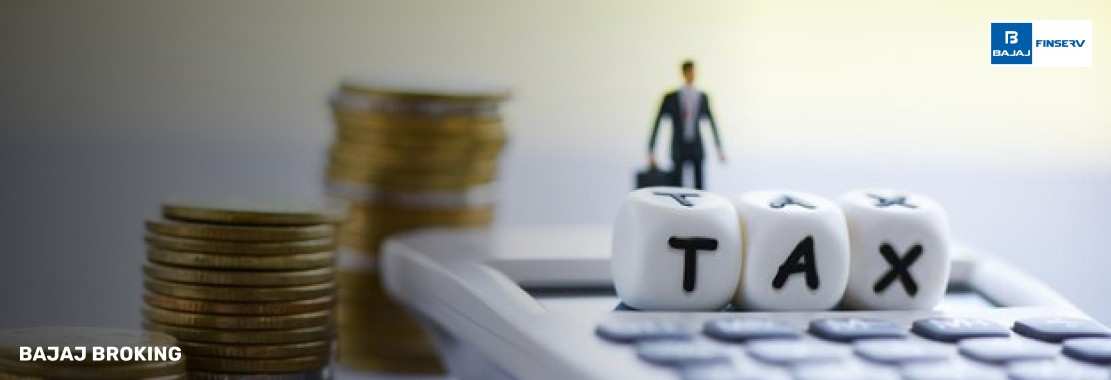Make money from money, that's what investments are. In order to grow your existing pool of funds, investment is often an attractive option. However, as an Indian citizen, it is equally essential for you to understand the details of investment. The process definitely begins with people investing in different securities but in the latter stage, income tax duties are also a part. Yes, interest earned on securities is liable to income tax under Section 193 of the Income Tax Act of 1961.
Income tax has various taxation rules and Section 193 of the Income Tax Act of 1961 is one such important segment. If you are planning investments or have already started, this guide is for you. Read until the end to have a detailed understanding of “what is Section 193” and how interest on securities is taxed.
Applicability of TDS on Interest on Securities
Section 2(28B) of Section 193 of the Income Tax Act of 1961 deals with interest on securities. Any interest accrued on security investments attracts a taxation of 10%.¹ The taxation is at 20% for anyone who fails to present a valid PAN card. So, it is important to have a PAN card when planning investments in securities, or else you may end up paying additional tax.
The security here refers to any type of security investment issued by the state, the central government, local authority, or a corporation. The TDS (Tax Deducted at Source) on the interest on securities is deducted by the issuing authority before paying the interest. This means the investor receives the interest on securities after TDS is deducted.
It is mandatory for a person or authority to deduct TDS before paying the interest under Section 193 of the Income Tax Act of 1961. The issuing authority may be an Indian or non-resident India.¹ The deducting must file the TDS within the due date. Usually, the last date for a TDS deposit is 30th April (if the amount is received in March) and 7 days from the month's end if the amount is received in any other month than March.¹
Exemptions and Exclusions in Section 193
There are certain exclusions and exemptions under Section 193 of the Income Tax Act of 1961. As an investor, you must be aware of these exemptions to ensure the taxation levied goes right. Certain exemptions under Section 193 of the Income Tax Act of 1961 are as follows:
Residents who have invested in a national defense bond that attracts an interest rate of 4.25%
The exemption also extends to any defense bonds issued during 1968 or 1972 that have an interest rate of 4.25%
Any loan interest paid on national defense
Interest accrued on a 7-year national savings certificate
TDS on interest on debentures cannot be deducted by the issuing authority if the interest accrued does not exceed ₹5,000 in the year. The interest must be deposited through the account payee cheque. This is applicable to HUFs (Hindu Undivided Families) and residents.
Any interest on security that is unpaid by the central or state government that hasn't exceeded ₹10,000 in a financial year
There are specific debentures issued by cooperative organisations, authorities/institutions, or public sector companies. These are liable for interest payment
General Insurance Business Act companies and those under other insurers need to pay interests
Interests accrued in demat securities that are issued by companies listed on recognised stock exchanges
Gold bonds with a 6.5% interest rate issued in 1977 and gold bonds with a 7% interest rate issued in 1980, whose nominal value is limited to ₹10,000 during the interest-bearing years, are exceptions to Section 193 of the Income Tax Act of 1961.
Example of How TDS is Deducted as Per Section 193
As discussed above, Tax Deducted at Source or TDS is deducted by the issuing authority before paying the interest on securities. Let's understand this by taking into account an example.
Here is an illustration explaining how TDS is deducted as per Section 193 of the Income Tax Act of 1961:
Ravish, a 34-year-old engineer, invested ₹4 lakhs in debentures. The company where he invested issued 8% interest annually. So, Ravish’s investment accrued a total of ₹32,000 in a financial year.
Since Ravish invested in a debenture that is liable to income tax under Section 193 of the Income Tax Act of 1961, 10% TDS will be deducted by the company before paying the interest to Ravish.
So, before paying the interest to Ravish’s account, the company will deduct 10% of the accrued interest, that is, ₹3200. So, Ravish will receive the final interest amount of ₹28,800.
Conclusion
Section 193 of the Income Tax Act of 1961 is an important part of the income tax, especially for investors. So, it is vital to understand the tax liability under Section 193 not just for the investors but also for the issuing authority. Section 193 of the Income Tax Act of 1961 simply states that 10% TDS must be deducted from the interest on securities before being paid to the investor.
On the other hand, the issuing authority must also file TDS within the due date to avoid any penalty. Any investor who fails to present a valid PAN card must pay 20% TDS instead of 10%. So, once you start planning investments, make sure to stay updated with the income tax duties.













